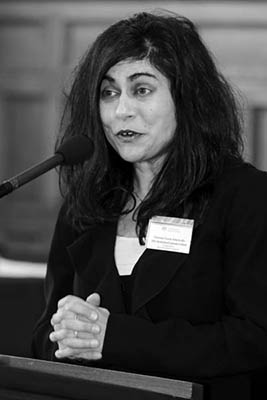Chapter 4 Programme 1.1 Discovery
Description
Overview
The Discovery programme supports the growth of Australia's research and innovation capacity by supporting research and research training, which generates new knowledge, technologies, products and ideas, the creation of jobs, economic growth and an enhanced quality of life in Australia.
It aims to deliver outcomes of benefit to Australia and build Australia's research capacity through support for:
- excellent, internationally competitive research by individuals and teams
- research training and career opportunities for the best Australian and international researchers
- international collaboration
- research in priority areas.
Discovery performance data, unless otherwise indicated, relates to funding commencing in the 2014–15 financial year (regardless of the date of announcement). Further information about Discovery schemes, grant statistics and additional performance data is provided in Part 5, Appendix 2.
2014–15 highlights
Performance
During the year the ARC:
- awarded 150 Future Fellowships commencing in 2014. The Future Fellowships scheme was subsequently identified as an ongoing programme
- awarded 16 Australian Laureate Fellowships, including one Kathleen Fitzpatrick and two Georgina Sweet Laureate Fellowships.
Operating context
During the year:
- the Australian Government announced a new set of Science and Research Priorities (on 26 May 2015). In this report, the ARC's performance in supporting Discovery research in areas of priority (Measure 10) is measured against the previous Strategic Research Priorities which were in place for the majority of the 2014–15 reporting period. Further information on the priorities is provided in the Glossary.
Summary of performance
2014–15 performance is summarised in Table 4.1.
Table 4.1: Discovery, performance summary
|
Elements of performance |
Performance |
|
|
Deliverables |
||
|
Provision of grants |
||
|
Number of applications |
6035 |
|
|
Number of new grants |
1041 |
|
|
Total value of new grants |
$482,075,544 |
|
|
Number of researchers supported |
2261 |
|
|
Management of grants |
||
|
Number of new and ongoing grants |
4864 |
|
|
Total value of new and ongoing grants |
$534,758,792 |
|
|
Policy advice |
||
|
Strategic policy advice on research and research training |
Achieved |
|
|
Key performance indicators |
||
|
Outcomes of benefit to Australia |
2/2 targets met |
|
|
Building Australia's research capacity—knowledge generation |
1/1 target not measured |
|
|
Building Australia's research capacity—research training and careers |
3/4 targets met 1/4 targets to be indentified |
|
|
Building Australia's research capacity—international collaboration |
1/1 target met |
|
|
Building Australia's research capacity—research in areas of priority |
1/2 targets met |
|
The performance framework identified in the 2014–15 Portfolio Budget Statements incorporates a number of changes from the framework used in 2013–14:
- the deliverables were expanded to include management of grants in addition to provision of grants
- one performance measure was added under the Key Performance Indicator (KPI) 'Outcomes of benefit to Australia'—Proportion of completed Discovery research projects that report their objectives were met
- one performance measure was removed from the KPI 'Building Australia's research capacity: research training and careers'—Evidence of impact of research conducted by ARC-funded fellows.
Deliverables
2014–15 deliverables are summarised in Table 4.2. Discovery schemes providing funding (new and/or ongoing) in 2014–15 were:
- Australian Laureate Fellowships
- Discovery Early Career Researcher Award
- Discovery Indigenous
- Discovery Projects
- Future Fellowships.
Table 4.2: Discovery, deliverables
|
Deliverable |
Result |
|
Provision of grants |
|
|
Number of applications |
2014–15: 6035 2013–14: 6374 2012–13: 5449 |
|
Number of new grants |
2014–15: 1041 2013–14: 1131 2012–13: 1168 |
|
Total value of new grants |
2014–15: $482,075,544 2013–14: $538,033,432 2012–13: $528,838,000 |
|
Number of researchers supported (investigators named in new grants) |
2014–15: 2261 2013–14: 2294 2012–13: 2283 |
|
Management of grants |
|
|
Number of new and ongoing grants |
2014–15: 4864 2013–14: 5029 2012–13: 5052 |
|
Total value of new and ongoing grants |
2014–15: $534,758,792 2013–14: $556,665,486 2012–13: $544,101,000 |
|
Policy advice |
|
|
Strategic policy advice on research and research training |
2014–15: Achieved 2013–14: Achieved 2012–13: Achieved |
Provision of grants
Through the Discovery programme, the ARC delivers funding for individual research projects and research fellowships and awards. Funding is awarded to administering organisations on the basis of competitive peer review processes involving Australian and international experts.
Number of applications
The ARC considered 6035 Discovery proposals for funding commencing in 2014–15 comprising:
- 90 proposals under the Australian Laureate fellowships scheme
- 1394 proposals under the Discovery Early Career Researcher Award scheme
- 32 proposals under the Discovery Indigenous scheme
- 3689 proposals under the Discovery Projects scheme
- 830 proposals under the Future Fellowships scheme.
The total was less than the figure recorded in 2013–14, primarily due to a drop in the number of proposals received under the Future Fellowships scheme (down from 1234 in 2013–14). More applications were received in 2013–14 because it was then expected to be the final selection round under the scheme. The establishment of the Future Fellowships scheme as an ongoing scheme was announced in the 2014–15 budget.
Number of new grants (Figure 4.1)
The ARC awarded 1041 new Discovery grants for funding commencing in 2014–15 comprising:
- 16 Australian Laureate Fellowships
- 200 Discovery Early Career Researcher Awards
- 10 Discovery Indigenous grants
- 665 Discovery Projects grants
- 150 Future Fellowships.
The total number of new grants awarded was slightly below previous years reflecting a drop in the number of grants awarded under the Discovery Projects scheme (down from 703 in 2013–14) and Future Fellowships scheme (down from 201 in 2013–14).
Total value of new grants (Figure 4.2)
Total funding of $482.1 million was awarded by the ARC to 1041 new Discovery grants commencing in 2014–15. The total funding awarded comprised:
- $42.2 million over five years for the Australian Laureate Fellowships scheme
- $70.6 million over three years for the Discovery Early Career Researcher Award scheme
- $4.4 million over three years for the Discovery Indigenous scheme
- $250.0 million over five years for the Discovery Projects scheme
- $114.9 million over four years for the Future Fellowships scheme.
The total amount of funding awarded is slightly less than previous years for the reasons outlined under 'Number of new grants' above.
Figure 4.1: Discovery programme, number of new grants funded by scheme
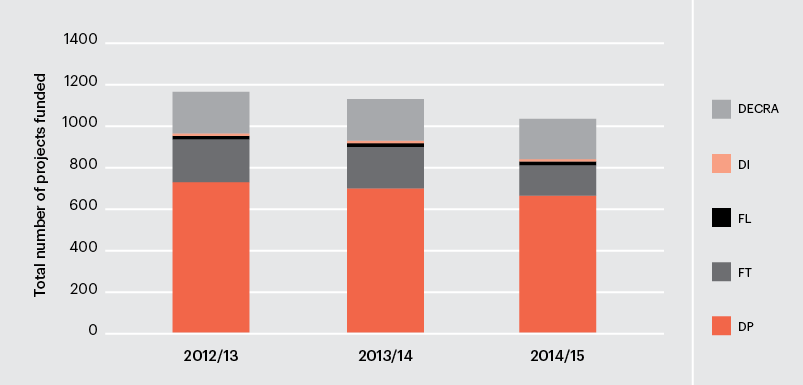
Figure 4.1 Discovery Programme, number of proposals funded by scheme 2012–13 to 2014–15
This is a column chart depicting the number of proposals funded by each scheme under the Discovery programme for the financial year periods: 2012/13, 2013/14 and 2014/15. It has a vertical axis labelled as: total number of projects funded. The vertical axis has increments of 200 marked, from 0 to 1400. It has a horizontal axis with three labels: 2012/13, 2013/14 and 2014/15. For each year period there is a vertical column consisting of differently shaded sections representing the number of proposals funded under the Discovery programme schemes. The columns show the following:
- In 2012/13 a total of 1168 proposals were funded, consisting of: 200 Discovery Early Career Researcher Awards; 10 Discovery Indigenous; 17 Australian Laureate Fellowships; 209 Future Fellowships; and 732 Discovery Projects proposals.
- In 2013/14 a total of 1131 proposals were funded, consisting of: 200 Discovery Early Career Researcher Awards; 10 Discovery Indigenous; 17 Australian Laureate Fellowships; 201 Future Fellowships; and 703 Discovery Projects proposals.
- In 2014/15 a total of 1041 proposals were funded, consisting of: 200 Discovery Early Career Researcher Awards; 10 Discovery Indigenous; 16 Australian Laureate Fellowships; 150 Future Fellowships; and 665 Discovery Projects proposals.
Figure 4.2: Discovery programme, total value of new grants, 2012–13 to 2014–15
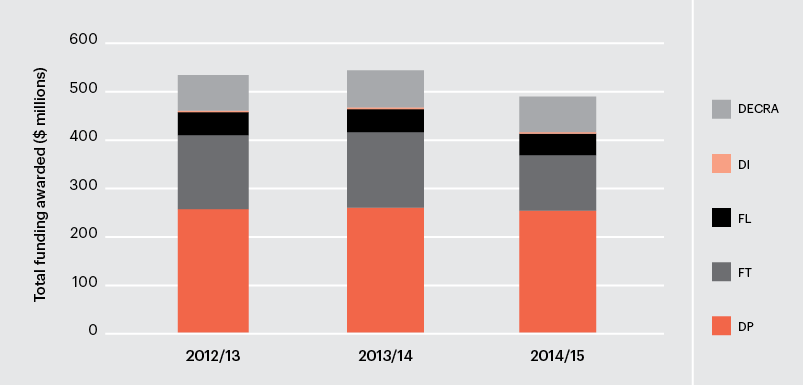
Figure 4.2 Discovery Program, total funding awarded, 2012–13 to 2014–15
This is a column chart depicting the total funding awarded by each scheme under the Discovery programme for the financial year periods: 2012/13, 2013/14 and 2014/15. It has a vertical axis labelled: total funding awarded (in millions of dollars). The vertical axis has increments of 100, marked from 0 to 600. It has a horizontal axis with three labels: 2012/13, 2013/14 and 2014/15. For each year period there is vertical column consisting of differently shaded sections representing the amount of funding awarded under the Discovery programme schemes. The columns show the following funding:
- In 2012/13 a total of 528.8 million dollars, consisting of: 72.3 million dollars in Discovery Early Career Researcher Award; 4.3 million dollars in Discovery Indigenous; 46.7 million dollars in Australian Laureate Fellowships; 151.6 million dollars in Future Fellowships; and 254.0 million dollars in Discovery Projects.
- In 2013/14 a total of 538.0 million dollars, consisting of: 75.8 million dollars DECRA; 4.9 million dollars in Discovery Indigenous; 47.4 million dollars Australian Laureate Fellowships; 152.3 million dollars in Future Fellowships; and 257.6 million dollars in Discovery Projects.
- In 2014/15 a total of 482.1 million dollars, consisting of: 70.6 million dollars DECRA; 4.4 million dollars in Discovery Indigenous; 42.2 million dollars in Australian Laureate Fellowships; 114.9 million dollars in Future Fellowships; and 250.0 million dollars in Discovery Projects.
Schemes: DECRA (Discovery Early Career Researcher Award) DI (Discovery Indigenous), DP (Discovery Projects), FL (Australian Laureate Fellowships), FT (Future Fellowships)
Number of researchers supported (investigators named in new grants)
A total of 2261 named researchers were supported on new grants awarded funding commencing in 2014–15, comprising recipients of individual fellowships and awards, chief investigators and partner investigators. The number of named investigators has remained relatively constant in recent years. Note that the figures in Table 4.2 for 2012–13 and 2013–14 are different to those provided in previous years due to a change in calculation method. In this year's calculation, named researchers have only been counted once.
Management of grants
In addition to administering the peer review processes which support the award of Discovery programme grants, the ARC also administers the grants once awarded—making payments in relation to agreed schedules and managing accountability mechanisms, for example, receipt of progress, end-of-year and final reports.
Number of new and ongoing grants
In 2014–15 the ARC administered 4864 new and ongoing Discovery grants.
Total value of new and ongoing grants
The total value of funding awarded to new and ongoing grants in 2014–15 was $534 758 792. All grant payments were made to administering organisations.
Policy advice relating to research and research training
In 2014–15 the ARC provided policy advice on a range of research and research training matters relating to the Discovery programme. Case studies in Chapter 3 provide examples of policy activities undertaken during 2014–15.
Objective—To support excellent, internationally competitive research
Description
Through Discovery funding, the ARC aims to deliver outcomes of benefit to Australia and build Australia's research capacity through support for excellent, internationally competitive research by individuals and teams.
In 2014–15 the ARC:
- continued to administer a better practice peer review process aimed at ensuring the highest quality funding proposals receive government support. In the first half of 2015, the ARC made a series of presentations to assessors about the ARC's assessment process to improve the quality of assessments and transparency of the processes.
Performance
Key Performance Indicator 1: Outcomes of benefit to Australia
|
Measure 1 |
Evidence of economic, environmental, social, health and/or cultural benefits to Australia arising from Discovery research |
|
|
Target(1) |
2014–15: Document ten case studies demonstrating benefits arising from the research |
|
|
Result |
2014–15: Met |
Target met |
|
2013–14: Met |
Target met |
|
|
2012–13: Met |
Target met |
|
(1) 2014–15 was the first year that a quantitative target was identified for this measure, that is, ten case studies.
During 2014–15 the ARC published a range of research case studies on its website, identified links to research outcomes reported directly by universities on its website, and monitored research outcomes reported elsewhere in the media and through final reports. Ten case studies are provided in Chapter 3 (pages 21–30).
|
Measure 2 |
Proportion of completed Discovery research projects that report their objectives were met(1) |
|
|
Target |
Greater than 95 per cent |
|
|
Result |
2014–15: 98.5 per cent |
Target met |
(1) A new measure in 2014–15
Data collected from final reports submitted to the ARC during 2014–15 showed that 98.5 per cent of completed Discovery research projects reported the objectives of the research project had been met. Note this measure takes into account changes to objectives required as a result of reduced funding or other post-award changes.
Key Performance Indicator 2: Building Australia's research capacity—knowledge generation
|
Measure 3 |
Share of the outputs of Discovery research projects that are rated at world standard or above |
|
|
Target(1) |
Greater than 80 per cent |
|
|
Result |
2014–15: Not measured |
n/a |
|
2013–14: Met |
Target met |
|
(1) This measure was first introduced in 2013–14; a new target was set for 2014–15
This measure was not assessed in 2014–15.
In 2013–14 the ARC used the Excellence in Research for Australia (ERA) 2012 results as an indicative measure of the quality of ARC-funded research. The ERA results showed that over 95 per cent of Category 1 research income was associated with assessed units of evaluation rated at or above world standard. Category 1 research income includes all research income universities receive from Australian Competitive Grants. The funds awarded by the ARC (through both Discovery and Linkage) and the National Health and Medical Research Council form the bulk of this income. The ERA 2015 evaluation is currently underway, with outcomes expected to be released at the end of 2015. Once the outcomes have been released, the ARC will use the results as an indicative measure of the quality of ARC-funded research.
During 2014–15 the ARC continued to collect information on the outputs of ARC-funded research projects from final reports submitted to the agency. Under the Discovery programme, research projects and fellowships initially funded in 2010 produced on average 12.1 academic outputs per research project, and a total of 111 commercialisation outputs (see Table A2.3).
Objective—To support research training and career opportunities
Description
Under the Discovery programme, the ARC aims to deliver outcomes of benefit to Australia and build Australia's research capacity through support for research training and career opportunities for the best Australian and international researchers.
In 2014–15 the ARC:
- supported researchers at all career stages through fellowships and awards administered under the Discovery programme
- supported research training (including funding provided for up to two Postdoctoral Research Associates and two Postgraduate Researchers under the Australian Laureate Fellowships scheme)
- continued to allow research project funding to be used for the stipends of Higher Degree by Research students and postdoctoral researchers under the Discovery Projects scheme.
Further details on personnel supported by Discovery funding can be found in Part 5, Appendix 2.
Performance
Key Performance Indicator 3: Building Australia's research capacity—research training and careers
|
Measure 4 |
Winning of prestigious prizes and awards by Discovery researchers |
|
|
Target |
Prestigious prizes and awards are received by ARC-funded researchers |
|
|
Result |
2014–15: Met |
Target met |
|
2013–14: Met |
Target met |
|
|
2012–13: Met |
Target met |
|
In 2014–15 ARC-funded researchers, from all career levels, were awarded prestigious national and international prizes and awards recognising their contribution. A list of examples is provided in Part 5, Appendix 4.
|
Measure 5 |
Proportion of Discovery researchers who are early career researchers |
|
|
Target |
Greater than 20 per cent |
|
|
Result |
2014–15: 21.5 per cent |
Target met |
|
2013–14: 22.3 per cent |
Target met |
|
|
2012–13: 21.2 per cent |
Target met |
|
In 2014–15, 331 researchers (or 21.5 per cent) of all researchers funded under the Discovery programme were early career researchers (ECR). Of this total, 200 researchers were supported by the ARC's dedicated funding scheme for early career researchers—the Discovery Early Career Researcher Award scheme. The remaining ECRs were chief investigators within five years of completion of their PhD funded through other Discovery schemes. The proportion of ECRs under the Discovery programme has remained relatively constant in recent years, reflecting the ongoing efforts by the ARC to ensure they are not disadvantaged when competing against more established researchers in the peer review process.
|
Measure 6 (1) |
Proportion of completed Discovery research projects that report the research supported Higher Degree by Research students |
|
|
Target |
To be set after benchmarking |
|
|
Result |
2014–15: 79.5 per cent |
n/a |
(1) A new measure in 2014–15
During 2014–15 the ARC continued to collect information from final reports about Higher Degree by Research (HDR) students supported by ARC-funded research projects. Of the Discovery programme grants initially funded in 2010 for which final report data was available, 79.5 per cent reported that they supported HDR students. Discovery Projects grants commencing in that year supported an average of 3.9 HDR students (domestic and international) per grant (see Part 5, Appendix 2, Table A2.4).
|
Measure 7 |
Proportion of fellowships and awards awarded to international applicants (foreign nationals and returning Australians) |
|
|
Target(1) |
2014–15: Greater than 20 per cent |
|
|
Result |
2014–15: 35.5 per cent |
Target met |
|
2013–14: 26.8 per cent |
Target met |
|
|
2012–13: 24.4 per cent |
Target met |
|
(1) A new target was introduced for this measure in 2014–15.
In 2014–15 35.5 per cent of Discovery fellowships and awards were awarded to international applicants (including returning Australians and foreign nationals). This is above the target set for 2014–15 and commensurate with the number of applications received from international applicants (31.9 per cent of considered applicants).
Objective—To support international collaboration
Description
Under the Discovery programme, the ARC aims to deliver outcomes of benefit to Australia and build Australia's research capacity through support for international collaboration. International collaboration is identified as an input to the conduct of excellent research.
In 2014–15 the ARC:
- awarded International Collaboration Awards under the Discovery Projects scheme to increase opportunities for collaboration between researchers, research teams and/or research centres in Australia and overseas
- funded (up to a specified limit) overseas travel by chief investigators, fellows and other project personnel and by partner investigators based overseas to travel to Australia
- continued to encourage Future Fellows to develop international linkages by inviting them to identify Host Organisations for the conduct of their research.
Performance
Key Performance Indicator 4: Building Australia's research capacity—international collaboration
|
Measure 8 |
Proportion of Discovery research projects that involve international collaboration |
|
|
Target |
Greater than 65 per cent |
|
|
Result |
2014–15: 69.5 per cent |
Target met |
|
2013–14: 65.3 per cent |
Target met |
|
|
2012–13: 65.0 per cent |
Target met |
|
Almost 70 per cent of the 1041 new Discovery research projects funded in 2014–15 indicated that the project would involve international collaboration, with the Australian Laureate Fellowships scheme indicating the highest level of international engagement (94 per cent). A total of 1532 instances of international collaboration with over 60 countries were anticipated. In addition, 100 proposals were awarded one or more International Collaboration Awards under the Discovery Projects scheme.
Objective—To support research in priority areas
Description
The Discovery programme aims to deliver outcomes of benefit to Australia and build Australia's research capacity through support for research in identified areas of priority. When applying for funding, researchers are invited to indicate whether their research addresses an area of Government priority. In addition, under the Future Fellowships scheme proposals are encouraged in targeted priority areas.
In 2014–15:
- the ARC implemented the Australian Government's Strategic Research Priorities (SRPs)through the Discovery programme. The Priorities were: living in a changing environment; promoting population health and wellbeing; managing our food and water assets; securing Australia's place in a changing world; and lifting productivity and economic growth.
- the targeted research areas of national significance identified for the 2014 Future Fellowships selection round were: bioinformatics; computer system security; Indigenous health and wellbeing; managing innovation, renewable energy and green technology; pattern recognition and data mining; safeguarding Australia (especially electronic security, surveillance and detection); understanding culture and communities.
Performance
Key Performance Indicator 5: Building Australia's research capacity—research in areas of priority
|
Measure 9 |
Evidence of economic, environmental, social, health and/or cultural benefits to Australia arising from Discovery research in areas of priority |
|
|
Target(1) |
2014–15: Document five case studies demonstrating benefits arising from the research |
|
|
Result |
2014–15: Met |
Target met |
|
2013–14: Met |
Target met |
|
|
2012–13: Met |
Target met |
|
(1) 2014–15 was the first year that a quantitative target for this measure was identified, that is, five case studies.
Examples of outcomes arising from ARC-funded research in priority areas are provided in the case studies in Chapter 3 (pages 21–30).
|
Measure 10 |
Proportion of Discovery research projects in areas of priority |
|
|
Target |
Greater than 85 per cent |
|
|
Result |
2014–15: 81.7 per cent |
Target not met |
|
2013–14: 91.5 per cent |
Target met |
|
|
2012–13: 92.0 per cent |
Target met |
|
A total of 81.7 per cent of new Discovery research projects funded in 2014–15 indicated their project was relevant to an Australian Government SRP, with the largest proportion (35.3 per cent) addressing the SRP 'lifting productivity and economic growth'. The relative proportions of SRPs supported by each Discovery funding scheme is illustrated in Figure 4.3 below.
The total is slightly lower than the target of 85 per cent set for 2014–15. This may be a result of a change in reporting between SRPs (which were in effect in 2014–15) and the previous set of Australian Government National Research Priorities (NRPs) (which were in effect in 2013–14). 2014–15 was the first year that all Discovery funding schemes collected data about SRPs rather than NRPs.
Figure 4.3: Discovery programme, proportion of new grants by Strategic Research Priority, 2014–15
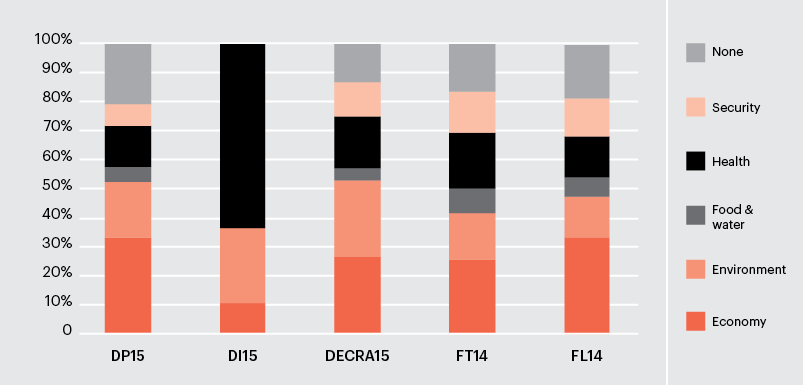
Figure 4.3 Discovery programme, proportion of new grants by Strategic Research Priority, 2014–15
This is a column chart depicting the proportion of proposals funded under the Linkage programme for the financial year 2014/15. The vertical axis has increments of 10 per cent marked, from 0 to 100. It has a horizontal axis with five scheme round labels: DP15; DI15; DECRA15; FT14 and FL14. For each scheme round there is a vertical column consisting of differently shaded sections representing the different Strategic Research Priorities. The columns show the following:
- In DP15: 20.3 per cent of new grants did not address a Strategic Research Priority; 9.8 per cent addressed Security; 15.9 per cent addressed Health; 4.7 per cent addressed Food and Water; 18.8 per cent addressed Environment; and 30.5 per cent addressed Economy.
- In DI15: 60.0 per cent addressed Health; 30.0 per cent addressed Environment; and 10.0 per cent addressed Economy.
- In DECRA15: 13.5 per cent of new grants did not address a Strategic Research Priority; 12.0 per cent addressed Security; 17.5 per cent addressed Health; 4.5 per cent addressed Food and Water; 26.0 per cent addressed Environment; and 26.5 per cent addressed Economy.
- In FT14: 17.3 per cent of new grants did not address a Strategic Research Priority; 14.0 per cent addressed Security; 19.3 per cent addressed Health; 8.0 per cent addressed Food and Water; 16.0 per cent addressed Environment; and 25.3 per cent addressed Economy.
- In FL14: 12.5 per cent of new grants did not address a Strategic Research Priority; 12.5 per cent addressed Security; 12.5 per cent addressed Health; 6.3 per cent addressed Food and Water; 25.0 per cent addressed Environment; and 31.3 per cent addressed Economy.
New funding commencing in 2014–15—Australian Laureate Fellowships
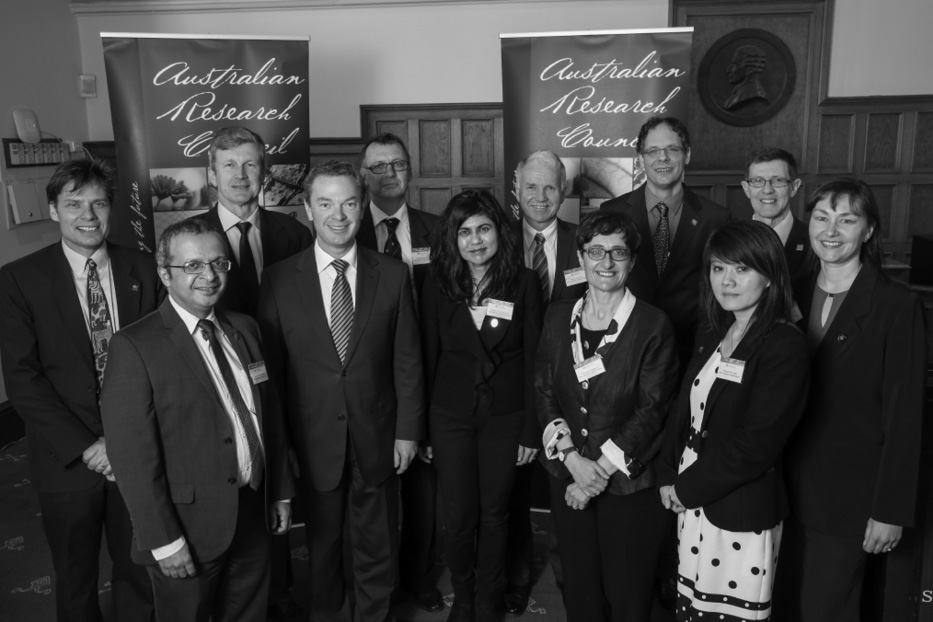
The Australian Laureate Fellowships scheme aims to attract world-class researchers and research leaders to key positions, and create new rewards and incentives for the application of their talents in Australia. The ARC awarded 16 Australian Laureate Fellowships with funding commencing in 2014. Over the next five years the Fellows will be working to:
- develop new biomonitoring technologies which will enable the assessment of the health of Australia's marine ecosystems
- develop systems that will harness solar energy to transform carbon dioxide into sustainable fuels
- transform toxic electronic waste into value added metals and alloys
- help ensure Australia's leadership in observational cosmology and instrumentation
- transform understanding of the structure and function of the brain as a complex physical system
- unravel the molecular mechanisms of DNA replication, providing the knowledge required to understand disease mechanisms and catalysing drug development
- understand how nanoparticles interact with biological systems so that advances can be made in using nanotechnology for therapeutic applications
- develop a new paradigm in algorithm testing, creating novel test instances and tools to elicit insights into algorithm strengths and weaknesses
- generate understandings of the impact and experiences of child refugees in Australia through the twentieth century and early 21st century
- develop long-term terrestrial records of environmental change, before, during and after the arrival of humans in Australian savannas
- address the relations between religion, science and modernisation
- reveal how the visual systems of marine creatures from the Great Barrier Reef receive and interpret colour and polarisation information
- use ancient microbiomes and genomes to reconstruct human history
- controlling gene expression with synthetic RNA binding proteins
- establishing the history of Pacific archaeology as a new sub-discipline within world archaeology
- increase understanding of deliberative democratic processes and their capacity to address global challenges.
above: The Hon Christopher Pyne MP and ARC CEO with the 2014 Australian Laureate Fellows. (Image courtesy of Russel Millard Photography)
below: Professor Veena Sahajwalla and Professor Alan Cooper speaking at the announcement of the 2014 fellowships. (Image courtesy of Russel Millard Photography)
